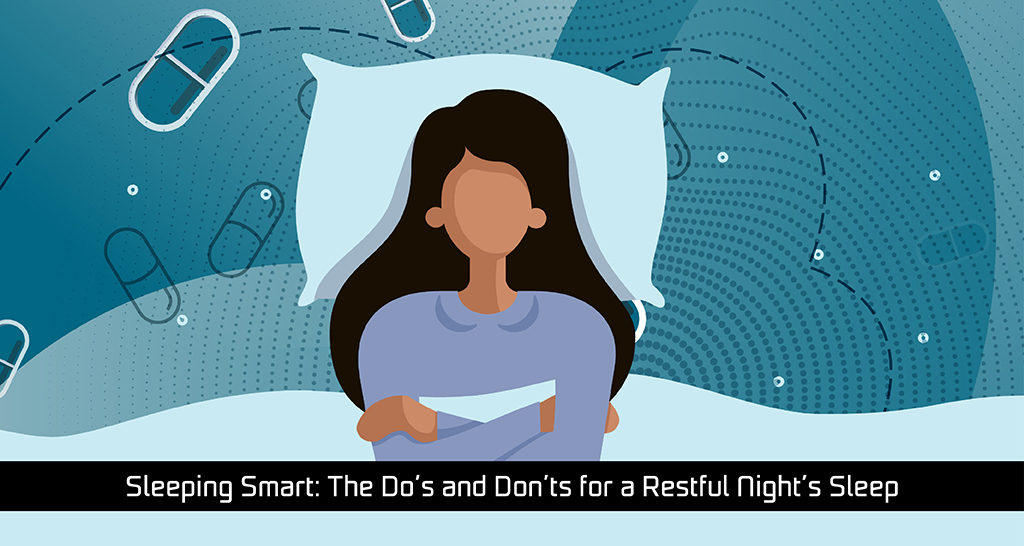In our fast and modern society, sleep has become a luxury for many individuals. The demands of work, social obligations, and constant connectivity often result in compromised sleep schedules. However, what many fail to realize is that sleep deficiency can have profound effects on our overall health and well-being.
The Detrimental Effects of Sleep Deficiency:
While individual sleep needs can vary, consistently getting only 4 hours of sleep per night is likely to have significant negative consequences which include:
- Impaired Cognitive Function: One of the most immediate and noticeable effects of sleep deficiency is the impairment of cognitive function. Lack of sleep can hinder attention, concentration, memory, and decision-making abilities. It diminishes creativity and problem-solving skills, making it difficult to perform optimally in various aspects of life.
- Increased Risk of Chronic Diseases: Sleep deficiency has been linked to a higher risk of developing chronic health conditions such as obesity, diabetes, cardiovascular disease, and hypertension. It disrupts the balance of hormones responsible for regulating appetite and metabolism, leading to weight gain and metabolic deregulation.
- Weakened Immune System: Sleep deficiency weakens the immune system, increasing vulnerability to infections and compromising vaccine effectiveness.
- Emotional and Mental Health Disturbances: Insufficient sleep can negatively impact emotional well-being, contributing to mood swings, irritability, and increased vulnerability to stress. It heightens the risk of developing mental health conditions such as anxiety disorders and depression.
- Impaired Physical Performance: Athletes and individuals engaged in physical activities should be particularly aware of the detrimental effects of sleep deficiency. Inadequate sleep compromises physical performance, reaction time, coordination, and endurance, increasing the risk of accidents and injuries.
The Do’s and Don’ts for Healthy Sleep:
Do’s
- Consistent Sleep Schedule:Go to bed and wake up at the same time every day, including weekends, to regulate your body’s internal clock and enhance sleep quality.
- Create a Sleep-Friendly Environment:Ensure that your bedroom maintains a cool, dark, and quiet atmosphere. Invest in comfortable bedding and consider using earplugs or eye shades to minimize disturbances.
- Limit Screen Time: Minimize exposure to screens like smartphones, tablets, and laptops at least one hour before bed. The blue light they emit can disrupt sleep-regulating hormone production.
- Exercise Regularly:Engage in regular physical activity to promote better sleep. To prevent increased alertness, it is advisable to avoid intense workouts close to bedtime. Finish exercise routines a few hours before bed for optimal sleep.
- Manage Stress:Incorporate stress management techniques like mindfulness, journaling, and relaxing hobbies into your routine. Seek professional help if needed to effectively manage stress and improve sleep.
- Maintain a Healthy Lifestyle:Prioritize a balanced diet, regular exercise, and moderate alcohol consumption to improve sleep. Eat nutritious meals, avoid heavy meals before bed, and stay hydrated for better sleep quality.
- Relaxing Bedtime Routine:Create a calming routine before bed to signal your body to unwind. Engage in relaxing activities like reading, stretching, or listening to soothing music. Identify what works best for you and integrate it into your nightly routine.
Don’ts
- Don’t Ignore the Importance of Sleep Hygiene:Keep your sleep environment clean, comfortable, and free of distractions. Good sleep hygiene habits enhance the quality of your sleep.
- Don’t Consume Stimulants Before Bedtime:Avoid stimulants like caffeine, nicotine, and alcohol before bed as they disrupt sleep. Choose calming alternatives like herbal tea or warm milk to relax before sleep.
- Don’t Engage in Rigorous Activities Before Bed:Avoid intense activities before bed, opt for a calming routine. Read, take a warm bath, or practice deep breathing and meditation to prepare for sleep.
- Don’t Nap Excessively:Short power naps can be helpful, but excessive daytime napping disrupts nighttime sleep. Keep naps to 20-30 minutes and avoid napping close to bedtime.
- Don’t Use Your Bed for Activities Other Than Sleep:Reserve your bed solely for sleep and intimacy. Avoid working, studying, or watching TV in bed to establish a clear association with sleep and signal your body it’s time to rest.
- Don’t Ignore Persistent Sleep Issues:If sleep problems persist, consult a healthcare provider or sleep specialist. Chronic insomnia or sleep disorders may require medical intervention. They can evaluate your symptoms, provide a diagnosis, and recommend suitable treatment options.
- Don’t Rely on Sleeping Pills as a Long-Term Solution:Sleeping pills offer short-term relief but aren’t a long-term solution. Taking these substances can create a habit and result in unwanted side effects. Consult a healthcare professional before considering sleep medication, and explore alternative methods for improving sleep quality first.
Correct Sleeping Time and Duration:
Sleep needs vary depending on age, lifestyle, and overall health, but adults should generally aim for 7 to 9 hours of quality sleep each night. Both quantity and quality matter, as uninterrupted sleep, deep sleep cycles, and REM sleep contribute to its restorative effects.
Here are a few guidelines for establishing a healthy sleep routine:
- Consistency:Make an effort to establish a regular sleep schedule, go to bed, and wake up at consistent times each day, including weekends. It controls your body’s internal clock and enhances sleep quality.
- Prioritize Sleep:Prioritize sleep in your daily schedule. Avoid sacrificing sleep for other activities and recognize the importance of rest in maintaining overall health and well-being.
- Be attentive to your body:Be mindful of your body’s signals. If you consistently feel sleepy during the day or rely on caffeine to stay awake, it may be an indication that you’re not getting enough sleep.
- Adjust Based on Individual Needs:While the recommended sleep duration for adults is 7 to 9 hours, some individuals may find they function optimally with slightly less or more sleep. Adjust your sleep schedule according to your body’s signals.
In conclusion, Sleep deficiency has harmful effects on physical health, cognitive function, and emotional well-being. It increases the risk of chronic diseases, weakens the immune system, and impairs performance. To improve sleep, establish consistent schedules, create a sleep-friendly environment, limit screen time, exercise regularly, manage stress, and maintain a healthy lifestyle.

